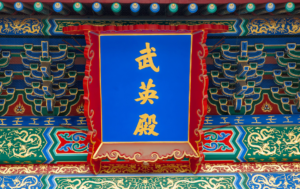Do you Qualify to study in China?
Did you know, Studying abroad can change the way you see the world? Study abroad programs give you the chance to go around the world as a classroom. Instead of picking information from books and the Internet, navigating a new landscape can open your eyes to a different culture, history, a new language, or your heritage. Study abroad programs also open the door to personal growth and discovery.
As you learn how to say ‘hello’ to a foreign language, make friends, eat exciting fresh food, it will surely increase your self-confidence, learn your self-reliance and expand the parameters of your safe place.
So you want to study in China but not sure what qualifications there are? Check out the following details
What are the conditions for foreigners to study in China?
- 1. Undergraduate – The conditions required for international students to study in China at the undergraduate studies are- anyone under the age of twenty-five but not less than 18 years, can enter the undergraduate study. Four to 6 years of study. Applicants should be able to pay the tuition cost and also prove that they can speak Chinese or English fluently
- 2.Master Degree– The conditions required for foreigners to study in China for a graduate degree: those who have passed the Chinese master’s entrance examination, or who have achieved excellent undergraduate graduation in a recognized University of higher learning, who have been approved for exemption from the examination recommended by the university, may become graduate students under the age of thirty-five. Two to three years of study.
- 3. Ph.D.: After the recommendation of more than two associate professors and qualified under China’s relevant institutions of higher learning assessment, under the age of 40 years, can become a doctoral student. Two to three years of study.
- 4. General students: with a university degree of more than two years, to study in China, under the age of thirty-five years, can be arranged for general students. The number of years of further education is one to two years.
- 5. Advanced students – Post Doc: university graduate and has obtained the equivalent of a master’s degree in China, or has obtained the qualification to study for a doctorate, after coming to China under the guidance of Chinese tutors, on a particular topic of further education, under the age of forty-five years, the number of years of study is generally one year.
Application materials for foreigners to study in China
- 1. Fill out and submit to the Committee printed “China University application form.”
- 2. have a valid “health certificate”
- 3. Copies of academic documents and transcripts and notarized English or French translations.
- 4. Apply for further education in the art major, in addition to providing step 1, 2 and 3 of the required materials, there should be two teachers with associate professor qualifications above the letter of recommendation. And provide the following materials:
Those who study the history of art shall submit the relevant papers; those who study music shall examine 30 minutes of vocal or instrumental playing tapes; those who study art shall submit color photographs of three works or six works; and those who further their art composers shall submit a song for examination.
- 5. The application of art major undergraduate students, in addition to the letter of recommendation of the teacher, is exempted, the application materials and further education students the same. Those who study the history of art submit a review or article about art and exempt them from submission.
What about your visa as a student in China?
This is an important point and there is no ambiguity about it. If you want to study in China, you apply for a study visa in your own country with the university’s Admission documents and JW202. You will not receive a one-year study visa, but a temporary entry visa that you will have to convert to a visa valid for your entire study stay within a few weeks of arrival in China. So don’t think things are going wrong if you get a temporary entry visa. The university in China usually reminds you in time that you have to convert the visa. What you need to take into account: you need a health certificate from a medical examiner for applying for your visa. It may be that, when you convert your temporary visa in China to a study visa, you have to get another health check.

5 Facts about China
- 1. Chinese, the most difficult language in the world? No way. It is one of the most concise languages, with which you can say a lot with few words. In addition, with nouns, you do not have to distinguish between plural or singular. The dog is always a dog, whether you have one, two or a hundred! And best of all: there are no verb conjugations. That doesn’t confess to irregular verbs, no past or present tense. Compare that to Spanish! Having is always having in Chinese, whether it’s about yourself, your classmates or your dog goes, tomorrow, today or last year. In China, the context determines everything.
- 2. So you learned Chinese in your home country but then you will soon find out that you do not understand everyone. There are countless of dialects in China, some of which differ so much from Mandarin that they are seen as a different language. Yet one thing remains the same in China, wherever you go, they use the same characters. For those who can read characters, it doesn’t matter if the journey goes north or south or the middle. The same characters may be pronounced in different ways, but the meaning remains the same.
- 3. If you can understand Chinese, you can also understand Japanese. All right, do not take this too literally, but in Japan, they use Chinese characters a lot. The pronunciation is not remotely similar to Mandarin, but the meaning is retained in Japan as well. Although there are only a few characters among a sea of Japanese writing, often these characters refer to the essence of the text. As a (student) Chinese, you can at least make an educated guess to what it’s about.
- 4. “Loan words” are a cause for entertainment in many languages, but most of all in Asian languages. Often attempts are made to mimic the original sound or meaning, which leads to funny results. For example, the word for cocktail is jiweijiu (鸡尾酒), literally, a cocktail drink and microphone is maikefeng (麦克风). Western food, in particular, produces fun things: in China, you can eat Pisa (pizza) with Mozilla (mozzarella), or go to the Maidanglao (McDonald’s) for a hanbao (hamburger).
- 5. The Chinese themselves also produce many beautiful or funny expressions, and those who learn Chinese soon have to deal with chengyu: this is a proverb or saying that consists of four characters. A lot of times there’s a whole story behind this. Like drawing the story of a snake with feet (画蛇添足, Doing something superfluous), or the old man who lost his horse (塞翁失马, being lucky in an accident). You can write an entire book about Chinese swearwords. In China, you can be made up for a weird melon, a stupid egg, or even the grandson of a turtle. Meanwhile, one of the most widely used statements in China is revered with an addition in the Oxford English dictionary: jiayou! (加油!). It literally means ‘add oil’ but is used as encouragement, like ‘’come on!’’ or ‘’you can do it!’’













